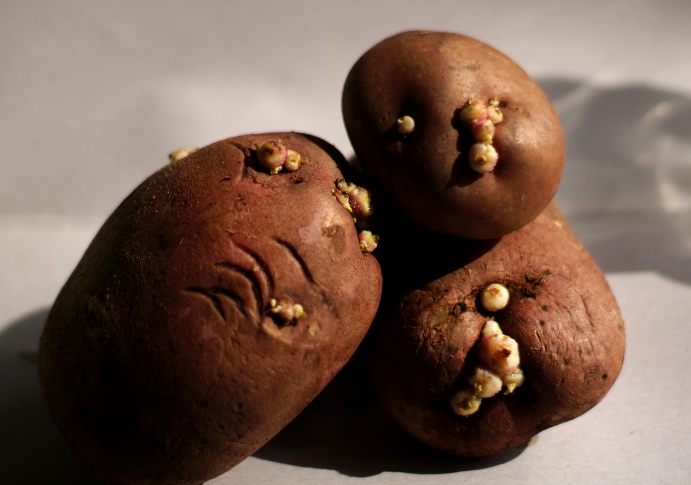Efforts to minimize food wastage are a common goal in our households. Regrettably, despite our best attempts, certain food items inevitably spoil in the refrigerator, forcing us to dispose of them. The availability of expiration dates for various vegetables is not always straightforward, leading us to rely on our instincts in such situations.
Maintaining the freshness of potatoes over an extended period is a challenging task. More often than not, potatoes tend to sprout and become cumbersome before reaching their full usability. The dilemma arises: should we still consume them, or is it time to discard them? The emergence of greenish lumps, accompanied by a knotty appearance, gives the potato an undesirable, rotting look. However, it’s important to note that this unappealing aspect does not necessarily mandate the disposal of the entire potato.

The emergence of sprouts serves as an indication that the potato is prepared to initiate growth. Following its harvest, the potato undergoes a more dormant phase, and had it not been plucked, these sprouts would have developed into new plants. The question of whether these potatoes are still fit for consumption introduces a bit of complexity. In no uncertain terms, the sprouts themselves are inedible, harboring various poisons that should be steered clear of. Consumption of these sprouts disregarding the warnings can lead to unpleasant consequences such as vomiting, headaches, and other digestive issues.

Nevertheless, eliminating the sprouts doesn’t eliminate the potential harm from the potato. Poison Control advises discarding such potatoes, but Dr. Rich Novy, a geneticist employed by the USDA Agricultural Research Service, provides a more nuanced perspective on this matter. In his view, the solution is clear-cut.
Is the potato already exhibiting a soft and mushy texture? If so, it’s time to dispose of it. On the other hand, if the potato remains firm, it can still be salvaged. For those seeking to sidestep such challenging decisions, investing the effort to adequately preserve your produce is a wise approach.
